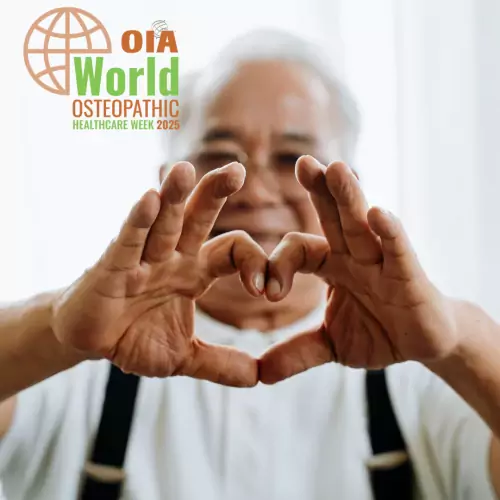Supporting healthy ageing
According to the World Health Organisation, the number of people 60 years and older will increase to 1.4 billion by 2030 and 2.1 billion by 2050. This will significantly impact healthcare systems by increasing the demand for healthcare services, adding strain on healthcare infrastructures, increasing the workforce challenges, creating rising healthcare costs, and shifts in healthcare models towards preventative care and integrated care models.
We will be focusing on the supporting role of the profession, informing you about the scope and possibilities of osteopathic care. World Osteopathic Healthcare Week (WOHW) brings together the global community of osteopaths and osteopathic physicians.
The Statistical reality
It is forecasted that between 2022 and 2050, poor health and early death from communicable, maternal, nutritional, and neonatal diseases will decline, but the burden of non-communicable diseases will rise.
The contribution of the osteopathic profession will be much needed when planning how to navigate the challenges we are facing in the future of healthcare and rehabilitation.
Osteopathic professionals are well positioned to advise, educate, detect and monitor early changes in health as well as provide treatment or referral, when necessary, as part of a multi-disciplinary healthcare team to facilitate health and agility in the ageing population (2).
Challenging age and ageism
The osteopathic profession is a long-standing supporter of healthy aging and community support. This aligns with The Decade of Healthy Ageing (2021-2030) initiative, a collaboration between the United Nations underpinned by the the United Nations Agenda 2030 on Sustainable Development Goals and led by the World Health Organisation.
The UN Decade of Healthy Ageing (2021–2030) seeks to reduce health inequities and improve the lives of older people, their families and communities through collective action in four areas:
- changing how we think, feel and act towards age and ageism
- developing communities in ways that foster the abilities of older people
- delivering person-centered integrated care and primary health services responsive to older people
- providing older people who need it with access to quality long-term care.
Find out more here https://www.who.int/news-room/

